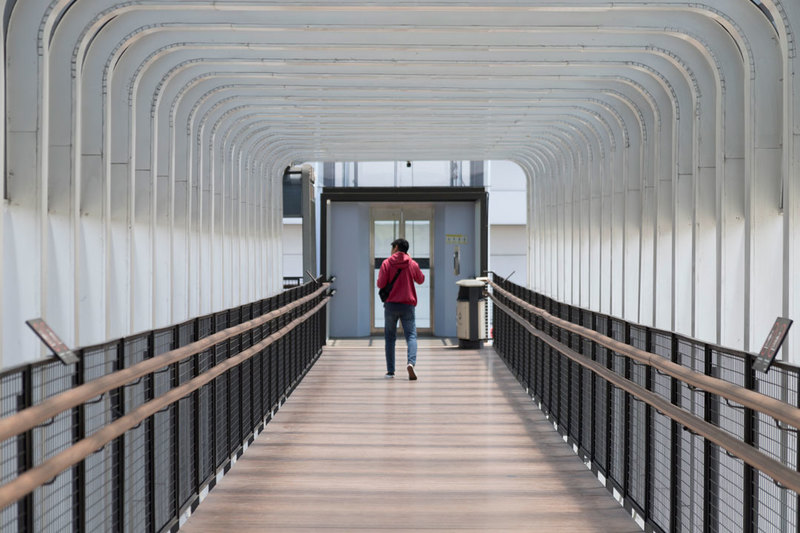
The Jakarta government has announced an extended period of large-scale social restrictions followed with the transition phase to enter the new normal.
Jakarta city government has decided to extend the period of large-scale social restrictions (PSBB) measures until the end of June before the new normal is fully implemented. June is to become the transition period to bring the economy back while the government is ordering policy to control activities to avoid the change for another outbreak, making sure people follow the measure to secure public safety.
At the virtual press conference on Thursday (4/6), Jakarta Governor Anies Baswedan announced the step-by-step points of the transition period aimed at reopening the economy and social activities, giving time for business as well as people to adapt with the new situation.
Since social distancing started back in mid-March, followed by PSBB on 1 April, Jakarta has not successfully flatten the curve of Covid-19 with an insignificant drop of new cases, making the current situation still remain dangerous for most people. With a rising number of new cases during the Eid holidays as well as a continually declining economy, the city is opting the new normal as the best solution to balance the urgency on public health and the people’s economy.

During the transition period, Governor Baswedan stated that socio-economic activities will be carried out gradually followed by disease control management, allowing general public to adapt to the New Normal. “This will come into effect indefinitely. We will evaluate everything during the transition period to determine what needs to be further adjusted before we implement the new normal,” says Baswedan.
Previously, Jakarta Deputy Governor Ahmad Riza Patria said the city will implement local-scale social restrictions (PSBL) to control the disease in 66 red zones in Jakarta. Taking the restriction to the scale of neighborhood-scale (Rukun Warga/RW), the PSBL is expected to isolate the virus transmission and minimise the change on the second wave of the outbreak.
Jakarta also requires permission letters for people who leave and visit the city as well as tightened the regulation on air travel to contain cross-regional transmission. Meanwhile, epidemiologists and medical experts ask the government to run more tests to analyze the demography of the virus and help the first responder to track the virus. Since the first cases were detected in March, Jakarta has reported 7,690 COVID-19 cases, with 523 fatalities and 2,607 recoveries (per 4 June). The government also needs to act fast on providing the medical facility and assessment tools at healthcare centres and hospitals while the transition period is starting. Experts also said that Jakarta needs to lower the reproduction of the virus in the city to make sure New Normal will not lead to the second wave of the virus as the country also face a health crisis.
Transition
5 June
- Religious activities are allowed with maximum of 50 percent of total capacity. Public gathering in the place of worship is limited only for 25 person max.
- Outdoor and indoor sports venues only allow 50 percent of total capacity.
- Public and Private vehicle including conventional taxi and online allows to operate and carry passengers with 50 percent usage of total seat capacity.
8 June
- Industries are able to operate with a limited capacity of 50 percent.
- Museum, gallery, the library will be open for public for 50 percent from total visitor capacity.
- Shop, restaurants, office, warehouse open with maximum of 50 percent.
- Online ride-hailing taxi motorbike such as Gojek and Grabbike are able to carry passengers with precaution and distance protocols.
13 June
SMEs assisted by Jakarta City Government back to operate with 50 percent of capacity
15 June
Mall and shopping centre open with a maximum of 50 percent visitors allowed to enter the premises.
20 June
Outdoor/indoor parks and zoo open with a maximum of 50 percent visitor from total capacity
25 June
RPTRA, local parks, beaches open with a maximum of 50 percent visitor from total capacity
28 June
Evaluation period toward New Normal.







